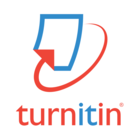- Focus and Scope
- Section Policies
- Peer Review Process
- Publication Frequency
- Open Access Policy
- Archiving
Focus and Scope
JPP (Jurnal Pendidikan dan Pembelajaran) publishes article on education and learning in general. Contains articles/results of research results written by experts, scientists, practitioners, and reviewers in educational and learning disciplines. Some JPP scopes include:
- Theory and foundation of education and learning
- Philosophy of education and defense
- Educational and learning media
- Methods and strategies as well as education and learning models
- Measurement and assessment of education and learning
- Educational and learning innovations
- Management of education and learning
- Education and learning curriculum
- Educators and students
- Education and learning policies
Section Policies
Articles
Peer Review Process
The submitted manuscript is first reviewed by the editors and must be free from plagiarism contents. The maximum limit of similarity is 20%. The submitted manuscript will be evaluated, whether it is suitable for our focus and scope or has a major methodological flaw.
At least two peer-reviewers will review every submitted paper. Reviewers are unaware of the authors' identity, and authors are also unaware of the identity of reviewers (double-blind review method). Reviewing process will consider novelty, objectivity, method, scientific impact, conclusion, and references. Reviewers' comments are then sent to the corresponding author for necessary actions and responses. The suggested decision will be evaluated in an editorial board meeting. Afterward, the editor will send the final decision to the corresponding author.
Publication Frequency
JPP (Jurnal Pendidikan dan Pembelajaran) is published two times a year in April and October.
Open Access Policy
JPP (Jurnal Pendidikan dan Pembelajaran) provides immediate open access to its content on the principle that making research freely available to the public to supports a greater global exchange of knowledge.
Benefits of open access for the author, include:
- Free access for all users worldwide
- Authors retain copyright to their work
- Increased visibility and readership
- Rapid publication
- No spatial constraints
However, works/articles in this journals as are bound to Creative Commons Attribution-ShareAlike 4.0 International License.
Archiving
This journal utilizes the LOCKSS system to create a distributed archiving system among participating libraries and permits those libraries to create permanent archives of the journal for purposes of preservation and restoration. More...











_2.png)
_.png)
